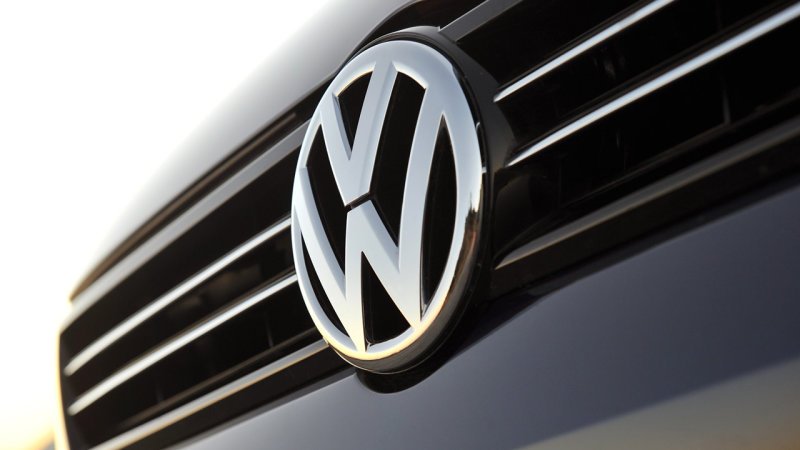Volkswagen's U.S. Boss Blames 'Individuals' for Cheating

"To my understanding, this was not a corporate decision; this was something individuals did," Michael Horn, VW Group of America CEO, told a panel of U.S. lawmakers investigating the automaker's wrongdoing.
"I agree it's very hard to believe, and I personally find it hard to believe," Horn said on Thursday.
Horn told the House of Representatives Oversight and Investigations panel that he knew in the spring of 2014 that VW might be breaking U.S. emissions rules, because a study by West Virginia University had shown some of its diesel vehicles were emitting toxic emissions on the road far higher than those permitted by U.S. regulations.
However, he added he did not find out that so-called "defeat device" software was used to manipulate emissions test results until "around Sept. 3," when the company admitted its cheating to U.S. regulators.
"This was a couple of software engineers who put this in for whatever reason," Horn said, speaking under oath. He did not give further details, adding investigations were ongoing.
Volkswagen has come under fire on both sides of the Atlantic for its handling of the crisis, with lawmakers, investors and customers saying it has been too slow to release information.
Almost three weeks after VW confessed publicly to cheating U.S. emissions tests, the company is under pressure to identify those responsible, fix affected vehicles and clarify exactly how and where the cheating happened.
The crisis has wiped more than a third off its share price, forced out its long-time chief executive, prompted investigations across the world and rocked both the car industry and German establishment.
Earlier on Thursday, German prosecutors raided Volkswagen's headquarters and other offices as part of their investigation into whether the automaker also cheated tests in Europe. Volkswagen said it was supporting the investigation and had handed over a "comprehensive" range of documents.
Analysts are still unsure how widespread the cheating was.
Germany's Sueddeutsche Zeitung newspaper reported on Thursday that Volkswagen's manipulation software was switched on in Europe, citing a company spokesman.
The carmaker has previously said the software could be installed on up to 11 million vehicles, mostly in Europe, but that for the majority of them it "does not have any effect."
In a statement on Thursday, Volkswagen said it was still investigating whether or to what extent the software interfered illegally with vehicles. "We are working intensely on technical solutions," a spokesman said. "For that reason, questions posed at this point of time are speculative."
Volkswagen has suspended more than 10 senior managers, including three top engineers, as part of an internal investigation. It has also hired U.S. law firm Jones Day to conduct an external inquiry.
But some analysts and investors have questioned whether new Chairman Hans Dieter Poetsch and new CEO Matthias Mueller, both company veterans, will introduce the sweeping changes in business practices they think are necessary to restore Volkswagen's reputation.
Anger at downplaying
Some critics are also angry at the company's decision to blame a small number of as yet unidentified people for the crisis, while also saying investigations are only getting started and likely to take months.
"They seem to still be trapped in a bubble and think they can get away with it and downplay it," Bas Eickhout, a Dutch Green party member of the European Parliament told Reuters, referring to a letter dated Oct. 8 from Volkswagen to the Parliament that blamed "the misconduct of a few people."
Volkswagen has grown rapidly to a global business making with a 12-brand portfolio including Audi, Porsche, Bentley, Skoa and Seat along with MAN and Scania heavy trucks. The automaker is controlled by the Piech-Porsche clan and also counts its home German region of Lower Saxony among its main stakeholders.
VW has announced plans in the wake of the crisis to draw up a new company structure, but it is not seeking the help of outside restructuring experts, a source close to the board said. "There's a strong tradition to handle such matters in-house," the source said.
Critics say giving top jobs to company insiders could complicate the clean-up. For example, it would make it hard for the supervisory board to take legal action against the management board because, until he became supervisory board chairman, Poetsch sat on the management board as finance chief.
The crisis has been a major embarrassment for Germany, which has for years held up Volkswagen as a model of its engineering prowess and looks to the car industry as a source of export income and an employer of more than 750,000 people.
Economy fears
Economy Minister Sigmar Gabriel on Thursday urged Volkswagen to be pro-active in addressing its problems, but also said critics should not overstep the mark. "There should not be a debate about the automotive industry or about diesel technology," Gabriel said after attending a meeting of Volkswagen's global workers council.
Data on Thursday showed German exports plunged in August by the largest amount since the height of the global financial crisis in the latest sign that slowing emerging markets are hurting Europe's largest economy.
European carmakers rely heavily on diesel vehicles, which account for about a half of new sales in Europe compared with only a small fraction in the United States and most other markets.
Diesel cars use less fuel and emit less carbon than similar vehicles with standard gasoline engines, but emit higher volumes of other gases blamed for lung and heart disease.
Volkswagen has long touted "clean diesel" technology that benefits from diesel's fuel economy while also meeting strict standards for emissions of toxins.Horn said Volkswagen would provide financial help to U.S. dealers left with stock they are unable to sell. He also said plans to refit vehicles in the United States should not affect their fuel-economy, although there might be a "slight impact" on their performance in terms of top speed.
Related News
